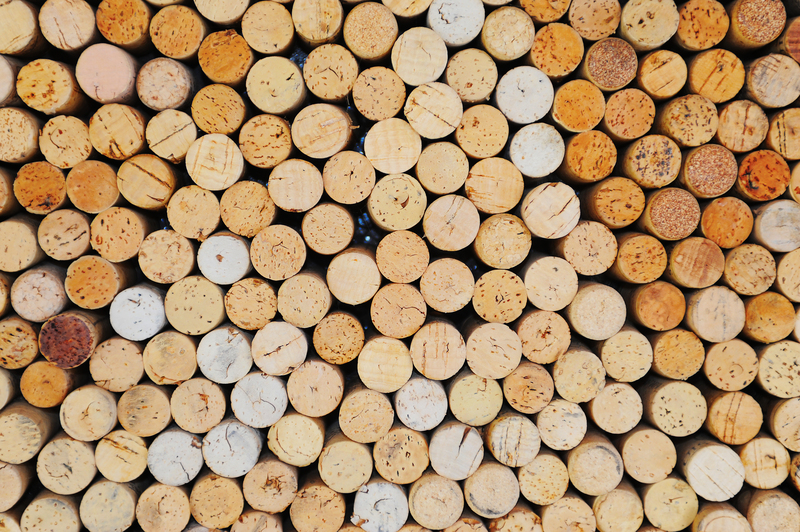Hands-On Recycling Projects for Schools: A Guide to Sustainable Education
In today's environmentally conscious world, introducing hands-on recycling projects in schools is more vital than ever. Not only do these activities foster environmental responsibility among students, but they also nurture creativity, teamwork, and problem-solving skills. By integrating practical recycling initiatives into school curricula, educators can create a culture of sustainability and inspire students to be proactive green citizens.

Why Is School Recycling Important?
With global waste production soaring and natural resources dwindling, schools have a unique opportunity--and responsibility--to lead by example. Recycling programs in educational institutions significantly reduce landfill waste, lower carbon footprints, and promote eco-friendly habits in future generations. When students engage directly with recycling projects, they comprehend the impact of their actions and bring these valuable lessons home.
- Reduces Waste: School recycling initiatives decrease the amount of trash sent to landfills.
- Encourages Lifelong Habits: Students learn principles they'll carry into adulthood.
- Builds Community: Projects often require teamwork, uniting students, teachers, and parents.
- Saves Resources: Recycling conserves energy, water, and raw materials.
Hands-on recycling projects for schools make environmental education dynamic, memorable, and fun--benefiting both the planet and young minds.
Starting Your School's Recycling Program
Step 1: Assess the Current Situation
Before launching a recycling project, evaluate your school's current waste management practices:
- What materials are most commonly disposed of?
- Are any recycling systems in place already?
- What resources and space are available for new initiatives?
- Is the school community supportive and involved?
Understanding these baseline factors will help you design projects tailored to your school's needs while maximizing impact.
Step 2: Build a Green Team
Form a "Green Team" comprised of students, teachers, and custodial staff. Leadership roles offer students real-world responsibilities and a sense of ownership. Include a diverse group representing different age groups and backgrounds to ensure your projects are inclusive and wide-reaching.
Step 3: Set Clear Recycling Goals
Define what your school community hopes to achieve. Focus on specific, measurable goals such as reducing waste by a certain percentage, recycling targeted materials like paper and plastics, or running educational awareness campaigns.
Creative Hands-On Recycling Projects for Schools
With the basics established, it's time to spark excitement with interactive recycling projects for students. Here are top ideas to help you infuse sustainability into every classroom.
1. Classroom Recycling Bins and Competitions
Provide each class with clearly labeled bins for paper, plastic, and metal. Organize monthly or quarterly recycling competitions between classes or grades:
- Track the amount of recyclables each class collects.
- Award points or small prizes for reaching recycling milestones.
- Encourage students to decorate their bins with environmental messages.
Benefits: This project fosters friendly competition, boosts engagement, and educates students about proper sorting practices.
2. Upcycled Art and Craft Projects
Encourage students to transform recyclable materials into creative works of art. Some hands-on possibilities include:
- Plastic Bottle Planters: Cut, paint, and plant seeds in empty bottles.
- Magazine Collages: Use old magazines to make posters, greeting cards, or murals.
- Cardboard Sculptures: Build models and displays from boxes and tubes.
Upcycling teaches students to view "waste" as a resource while developing their artistic skills and imagination.
3. Recycled Paper-Making Workshops
Host workshops where students make their own recycled paper by shredding used paper, mixing it with water, and pressing it into new sheets. Incorporate natural dyes and plant inclusions for a personalized touch.
- Link the activity with lessons on resource conservation.
- Use the handmade paper for class projects or thank-you notes for community helpers.
Tip: This project is especially popular in elementary schools due to its hands-on and sensory nature.
4. School Composting Programs
Organic waste--like food scraps from the cafeteria--is often overlooked. Launching a composting project allows students to observe nature's recycling in action:
- Create compost bins in science labs or at the school garden.
- Assign student teams to monitor and maintain the compost system.
- Use finished compost in landscaping, flower beds, or vegetable gardens.
This closed-loop project connects waste management with biology, gardening, and environmental science curricula.
5. Eco-Brick Construction
Eco-bricks are plastic bottles densely stuffed with non-recyclable plastic waste. When packed tightly, they become sturdy building blocks for benches, garden borders, or playground equipment.
- Collect soft plastics, wrappers, and bags for stuffing.
- Involve math classes in calculating volumes and structural stability.
- Partner with local environmental groups for larger construction goals.
Educational Value: This innovative recycling project demonstrates real-world applications for otherwise landfill-bound plastics and teaches engineering basics.
6. Recycling Education Campaigns
Arm your students with knowledge and communication skills by having them lead awareness campaigns:
- Design posters highlighting the impact of recycling.
- Host assemblies, skits, or video presentations for the school community.
- Develop informative newsletters or social media posts to share with parents.
*Peer-led campaigns empower students and make recycling a shared value in your school culture.*
7. Clothing and Textile Drives
Clothing waste is a growing environmental problem. Organize periodic clothing and textile recycling drives:
- Allow students to donate gently-used clothing for reuse or repurposing.
- Discuss the environmental impact of fast fashion and landfill waste.
- Partner with local charities or textile recycling organizations.
Highlight the significance of reusing fabrics and the creative potential for sewing/upcycling projects.
Integrating Recycling with the Curriculum
To maximize the effectiveness of school recycling initiatives, weave them into classroom learning:
- Science: Explore the science behind decomposition, sorting processes, and pollution.
- Math: Collect and graph recycling data; measure volumes of collected materials.
- Art: Create eco-art using recycled supplies or organize an upcycled art exhibition.
- Language Arts: Write persuasive essays on reducing waste or design environmental poetry displays.
- Technology: Design digital campaigns, recycling apps, or data-tracking platforms.
Interdisciplinary projects not only reinforce the importance of sustainable practices but also make learning more engaging and relevant to everyday life.
Tips for Long-Term Success
- Engage the Whole School Community: Involve teachers, staff, families, and local organizations.
- Monitor and Celebrate Progress: Display charts showing the amount of recycled material and recognize top contributors publicly.
- Make It Fun: Use games, contests, and creative projects to keep momentum high.
- Provide Feedback: Regularly update students on how their actions make a difference locally and globally.
- Adapt and Improve: Encourage feedback and be open to new ideas for expanding your recycling efforts.
Highlighting Success: School Recycling Project Case Studies
Case Study 1: The "Green Classroom" Challenge
At Fairview Middle School, each classroom was assigned a recycling bin and tasked with minimizing waste over a semester. Weekly audits were conducted, and the class with the highest recycling-to-waste ratio won an eco-friendly prize--a field trip to a local nature reserve. Results: Schoolwide waste was reduced by 25%, and student surveys showed increased environmental awareness.
Case Study 2: Community Eco-Brick Park Bench
Oakridge Elementary partnered with local organizations to collect non-recyclable plastics, fill bottles, and build a park bench for the playground. Students helped design and assemble the project, integrating engineering and environmental science. Results: Hundreds of pounds of plastic were diverted from the landfill, and the bench serves as a daily reminder of what teamwork and recycling can accomplish.
Resources for Hands-On Recycling Projects in Schools
- Environmental Protection Agency (EPA): Recycling Basics
- Recycle Now: School Recycling Resources
- TerraCycle: Specialty Recycling Programs
- Local Department of Sanitation: Inquire about school programs, bins, and educational materials

Conclusion: Creating a Greener Future with Student Recycling Projects
Hands-on recycling projects for schools go beyond simple environmental actions; they empower students with practical skills and inspire lifelong stewardship of our planet. By integrating creative, engaging recycling activities into your school, you are nurturing a generation that values and protects the earth. Whether you start with a classroom competition or build an entire eco-friendly community project, every step towards recycling matters.
Encourage students to become ambassadors for sustainability within their homes and neighborhoods. The lessons learned through school recycling programs will echo far beyond the classroom, paving the way for a cleaner, healthier world for all.
Frequently Asked Questions (FAQ) - School Recycling Projects
-
What materials are easiest to recycle at school?
Paper, cardboard, plastics (#1 and #2), aluminum cans, and food scraps for composting are the most practical and impactful materials for school recycling projects. -
How can schools encourage reluctant students to participate?
Make projects fun and rewarding--offer incentives, recognize achievements, and empower students to lead campaigns. -
Can small schools make a big impact?
Absolutely! Every action counts. Small schools can show incredible leadership, especially when sharing lessons with local communities. -
Are there grants for school recycling programs?
Yes. Many government and NGO initiatives offer funding for green projects. Check with local environmental agencies and non-profit organizations.
Ready to get started? Inspire your students, engage your community, and make a lasting difference with innovative hands-on recycling projects for schools!